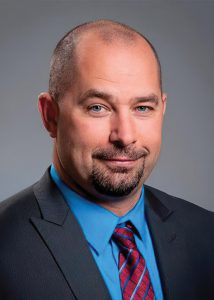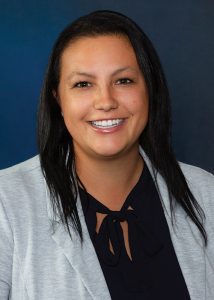Dedicated outsourced staffing provides agencies and brokerages greater independence
By Maura C. Ciccarelli
When Norm Hudson’s full-service agency, Inszone Insurance Services, was looking to expand about 10 years ago, finding talent to do back-end processing was challenging—and it’s even more so today.
“We were recognizing a tightening labor market as far back as 2014,” says Hudson, principal owner and executive chairman of the board at Inszone, which he purchased along with Chris Walters, chief executive officer, in 2013. “We started looking for how we could build some scalable labor resources.”
Between an aging employee demographic in the insurance agency segment and tough competition for talent from corporate-run agencies, independent agencies and brokerages have been feeling the strain to stay independent. They don’t often have the budget or book of business to compete for people to do the entry-level jobs, but the work still needs to get done.
The idea for Staff Boom began to coalesce after Inszone looked at hiring U.S. workers for its expanding entry-level processes and also at what services existing outsourcing companies were offering.
Hudson says the missing elements were an outsourced operation that would have staff members dedicated to a single client and who could work outside U.S. office hours, giving an agency the advantage of a 24/7 week. Plus, the dedicated staff model meant that Staff Boom employees could learn how to handle more complex tasks over time and could develop a long-term relationship with the client company’s U.S. staff.

—
—
“At the end of the day, when properly utilizing core staff, those businesses are making more money … .”
—Norm Hudson
Co-founder and CEO
Staff Boom
How it works
Begun in 2015 with Inszone as the company’s first customer, Staff Boom now has 160 clients and nearly 2,000 employees overseas and based in the Philippines, Peru, and at its headquarters in Anaheim, California.
Ninety-five percent of Staff Boom’s professionals are in the Philippines, where English is the official business language, says Angela Valencia, Staff Boom’s chief operating officer. A new, smaller location in Peru offers services in English and Spanish. The teams are overseen by a U.S.-based supervisor dedicated to that particular client.
“Once we sign on with a client, our employees work specifically for that account,” she says. “They don’t process tasks for other clients. It’s important to us that the partners and clients are treating those employees as if they’re just an extension of their own team.”
Staff Boom typically starts off clients with less complicated tasks and builds to more complex ones, as Staff Boom’s depth of knowledge about the client’s business grows.
Time differences also allow more flexibility for services around the clock. The Philippines location, for instance, is 16 hours ahead of Pacific Time, which covers overnight services in the United States. The Peru location operates on Eastern Time in the U.S. in the winter and Central Time in the summer because of U.S. daylight saving time.
“We’re pretty flexible as far as what we’ll do with our clients when it comes to the hours worked, whether it’s data work or voice work we can do overnight,” Valencia says. “We basically operate 24/7 in state-of-the-art facilities [in the Philippines]. It gets some of those high-volume/low-complexity tasks off of the plates of the [client’s U.S.-based] licensed professionals or higher-skilled employees.”
“You can’t afford to have your account managers doing certificates and policy checking and delivery,” says Hudson, who also carries the title of Staff Boom co-founder and CEO. It’s not possible for the account manager to manage a large enough book of business to make the revenue to justify the higher salaries now demanded by the marketplace.
“We provide a really nice solution to get all that remedial tasking off [their plates] and allow them to be client-focused and revenue-generating more hours of their day. It makes the economics of the agency model work more effectively,” he says.
To get Staff Boom employees ready for their assignments, the company hires groups of people in waves and puts them through a six- to eight-week training program that gives them insurance basics and runs them through processing some of the tasks.
“We’re weeding out the employees [who aren’t working out] before we place them on any account, so we have ready-to-go employees available at all times,” says Valencia. “That’s a real benefit for companies. Finding employees is not the easiest thing to do these days so [if they need] additional resources or they lose an employee domestically, they can reach out and quickly get some additional support from their team.”
“One of the ways to be successful is to really integrate that employee into your ecosystem and have them be a part of the team … .”
—George Kalamaras
Vice President, Business Development
AIS Insurance Specialists
Filling the talent gap
Valencia says many agencies are having trouble finding domestic-based employees to fill entry-level positions, either because applications aren’t coming in or the salary requirements are higher than agencies and brokerages can pay. This longtime trend has become more sharply outlined in U.S. business since the pandemic, but has hit the insurance industry harder as employees are aging out and lower level jobs aren’t being sought by younger workers.
George Kalamaras, vice president, business development, at AIS Insurance Specialists in San Diego, says his commercial and personal lines agency began working with Staff Boom in 2018 on back-end processing of carrier requests, certificates of insurance, proof of homeowners’ insurance requests, address verification, good-student discounts, and more. Now, AIS is expanding into customer communications using email, phone calls and some chat.
“What we liked about Staff Boom is that it was built by folks who are in the insurance business and are people who we’ve known and respected,” Kalamaras says. “They’ve been able to build a really nice business. After going [to the Philippines location] and seeing the operation, I was very impressed with the mindset [and] the culture. They genuinely want to help people.”
He says, “The biggest win for us was just allowing our folks here to be more available for [our] customers who are calling AIS Insurance.”
The agency also made the decision early on to treat Staff Boom employees as an extension of its own company, just like any remote employee would be. That means inviting them to participate in meetings remotely and getting the same training as any agency employee.
“One of the ways to be successful is to really integrate that employee into your ecosystem and have them be a part of the team, as opposed to someone who just does some of the back-end processing. We want to have them be part of the team and that way they learn just like any new employee would,” he adds.
“It’s just really like having an employee who’s working remotely from home,” Kalamaras concludes.

Scaling up service while upgrading U.S.-based jobs
“There’s definitely a misconception that if you outsource that means that people here domestically are going to lose their jobs,” explains Valencia. “Clients who have embraced this outsourcing partnership have found additional opportunity for their domestic employees to grow into higher level, higher paying positions, once we get some of those mundane tasks off their plates.”
Byron Storms agrees. He’s president, chief executive officer, and chairman of the board of Aspire General Insurance Services, an auto insurance carrier based in the Los Angeles area. “We were able to continue to grow our U.S.-based staff in more critical roles and support and augment those roles with really talented people in both the Philippines and Peru,” he says.
Staff Boom’s services for the firm include customer service, First Notice of Loss (FNOL), marketing, underwriting, general processing, and general accounting. Storms says his company’s partnership began eight years ago as a way to help Aspire scale up its workforce at a lower cost, with the flexibility of adjusting staff up or down very quickly.
“I’m super proud to say Aspire has not displaced one U.S.-based employee since we began working with them,” Storms notes. “We’ve made several trips to both the Philippines and Peru, and we are always amazed how genuine and thankful they are to be part of our team. Using a hybrid approach of U.S.-based employees and Staff Boom has and will continue to be a key difference maker for Aspire.”
He adds, “There is no way we could have grown at the pace we have without using Staff Boom as a key resource. Also, we were able to do it at a fraction of the cost [compared] to many other MGAs and carriers, due to their extremely high wage costs.”

—
—
“Once we sign on with a client, our employees work specifically for that account. They don’t process tasks for other clients.”
—Angela Valencia
Chief Operating Officer
Staff Boom
Agency independence
Another critical advantage of the model, Hudson says, is that it helps smaller or mom-and-pop agencies retain their professionals instead of losing them to big corporate-run agencies.
“At the end of the day, when properly utilizing core staff, those businesses are making more money, and the client is getting a better focal attention point on them and their experience is improved,” Hudson says.
By outsourcing just what needs to be outsourced, agencies win on all levels. “The job satisfaction goes up, the wages become appropriate, the client experience is improved, the employees’ work environment and compensation are improved, and the margins of the business have improved,” Hudson explains.
“I think those that don’t pivot to that type of a model and find some differentiated cost solutions for their labor resourcing are going to be left behind,” he concludes.
For more information:
Staff Boom
www.staffboom.com
The author
Maura Ciccarelli is a freelance journalist originally from Philadelphia who now writes about business and more from the road full-time.






